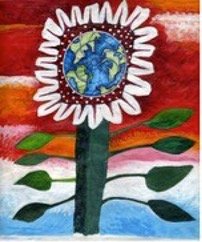Introduction, Mr. Jian-Wu Wu, The National Gyro Master in Taiwan
Mr. Wu has dedicated his life for two decades to the development of the unique local gyro culture. And more importantly, Mr. Wu is a passionate educator. His creativity has turned the gyro sport into performance art. Under his gentle but firm coaching, Mei Hwa students become confident and self-assured through long hours of individual and teamwork practices. His effort leads to the building of the Gyro Top Museum where the Daxi gyro culture is preserved, celebrated, and continues to evolve.
He hopes that through the learning of the highly disciplined gyro sport, his students become not only fine athletes, but even more, wholesome citizens with confidence and integrity. He hopes that some of his students will catch on his flame of passion about preserving and nurturing this unique local gyro culture. “Who knows,” he commented, “they might be like the dandelions, carried by the wind far and wide, impregnating new fertile soil with this playful and yet demanding sport.”
The Barefoot Artists program at Mei Hwa Elementary School aimed not only to create a beautiful mural, but more importantly, to bring change in the community, from viewing themselves as the unwanted and the weak in the society to becoming poised and creative people who take action to make things better for themselves.
To do that, one must engage the children. Collaborating with Zizhuo Shi, a Buddhist nun from Xiang Guang Shan Si (香光山寺), the “Awakening Creativity in Mei Hwa” program was launched last summer, ten months before Lily’s visit. It included painting, story-telling, presentation, interviewing elders in the community and exploring forgotten historical sites in the region.
(Left) The poster announcing the Awakening Creativity summer program. (Right) Look at the children. How proud they are with their art works!
Michele Hemenway, our partner and educator in Louisville, KY commented, “Lily Yeh works with art and community in Daxi, Taiwan, helping to reinvigorate a school that had been so neglected it was close to closure. Look at these children now! I cannot help but think about our own schools here and our children who are also so longing for this kind of joy and expression.”
Through this on-going “Awakening Creativity”program, students created images of two themes, the gyro tops and the tree of life. Their imagination and sensitivity guided the development of Lily’s design for the mural, which incorporated many of the images created by the students.
The gyro tops in the mural represent the long tradition of gyro sport in Daxi, which used to be a flourishing port, exporting many things including the hardwood camphor trees that grow abundantly in the area. Woodcarving and furniture making once thrived. Adults turned the small leftover wood pieces into spin tops for children to play with. Over time, this popular game evolved into a special kind of sport and a gyro culture evolved in Daxi.
A shining feature of the Mei Hwa School is its unique gyro sport program, in which students compete and perform with wooden spin tops of all sizes. It was created because of the passion and dedication of the national gyro master Mr. Jian-Wu Wu (吳建五) and the unusual history of the region.
Mr. Wu, who has dedicated his life to the development of the gyro sport, is also a passionate educator. His creativity has turned the gyro sport into performance art. Under his gentle but firm coaching, Mei Hwa students become confident and self-assured through long hours of individual and team practices. His effort led to the building of the Gyro Top Museum, where local culture is preserved, honored, and celebrated. Our mural is titled the Mei Hwa Gyro Tree of Life in recognition of this culture.




